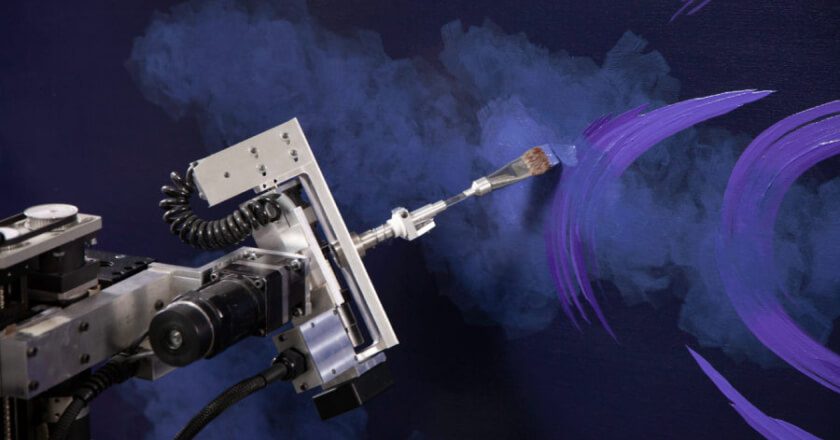Get Inspired
Build the life you love. Learn more about fusioneering:

Posted on March 8, 2022 in Critical Thinking Skills
The journey to becoming a truly successful fusioneer is complex – and no single path, whether you’re Paul Kirby or Leonardo da Vinci, is the “right” way to fusioneer. Any two given fusioneers may be entirely different individuals, with entirely different personalities, working in entirely different fields. What, then, are the skills inherent to being a fusioneer? What are the base requirements for seamlessly blending disciplines and fields in new and fascinating ways? What is the ember from which the fire of fusioneering burns forth?
Read More: Paul Kirby’s Journey To Inspire Through Fusioneering
One of the most fundamental and important requirements for a fusioneering mind is the ability to objectively analyze and evaluate information in order to form effective judgments and ideas – in short: critical thinking.
Critical thinking is a powerful, often overlooked skill set that allows for more advantageous, deliberate, and thorough utilization of information and ideas from our surrounding world. You might be saying, “but I already think critically” – which is surely the truth – but are you aware of how? Is the process deliberate, intentional, and thorough? Perhaps your critical thinking skills could benefit from a little critical thought? If you’re looking for a leg up, or just a refresher, the following four methods might just give your rational mind the boost it needs.
Analysis of information is a necessary component of effective problem-solving. If a problem isn’t effectively understood, then how can it be effectively solved? Unfortunately, it is often easy to overcomplicate issues through overthinking. When our thoughts become convoluted, we can lose sight of the true purpose behind our goals – and perhaps a simple solution to a problem becomes unnecessarily hidden. The strategy for overcoming the barriers to our insight is relatively simple – it’s the same way the average five-year-old approaches the world: the constant asking of questions (though, unlike a five-year-old, maybe you shouldn’t voice your every question aloud).
While it may feel silly to constantly seek the “why” and “how” of things, these questions are the secret to maintaining a clear view of the situation you’re facing. As a start, approach situations and problems by asking simple questions about the basis of the issue. What do you know? How do you know it? What are you trying to accomplish? While these questions may seem broad and basic, consider them starting threads that, when pulled, lead to greater questions and knowledge. When you have a confident grasp on the foundational basis of a topic, you’ll then be able to build your awareness with greater and deeper questions. Seek not just knowledge, but also insight. Challenge assumptions. When told that something is impossible to accomplish or realize, ask “why?”
Humans are emotional and instinctual creatures (we aren’t robots, after all). And while there’s nothing wrong with having emotions or being emotional (quite the contrary, as these are the very things that make us human), our emotions and irrational impulses can interfere with effective problem solving and reasoning. What’s more, when we don’t know something or don’t have every piece of a puzzle, our mind leaps to assumptions. We “fill in the blanks” with made-up information that can distort the facts of a situation – and we often don’t even know that we’re doing it. The impulse of the mind is to take the easiest path, which often means subconsciously overlooking information or ignoring uncomfortable or complicated truths. These shortcomings can be defeated by slowing down and rationally analyzing matters at hand.
If you’re familiar with Star Trek, Leonard Nimoy’s revered character, “Spock,” can serve as an excellent example of rational problem-solving. Spock never rushes into a situation, and doesn’t act on impulse – instead, he approaches every problem by asking questions, weighs all that he knows about the given issue, and calmly attempts to test the logic of possible solutions. Spock doesn’t ever rely on assumptions, and never offers a solution purely for the sake of offering a solution. And while Spock may be a fictional alien, he still serves as one of the paramount examples of the power of logical wisdom and rational thinking. The next time a complex issue rears its head, consider this quote from Spock, taken from the other great paragon of logic and reasoning, Sherlock Holmes: “Once you eliminate the impossible, whatever remains, no matter how improbable, must be the truth.”
So, we’re asking questions and using these questions to build logical patterns of thinking and logical solutions… what’s next? Well, it’s time to turn the questions and logic inward towards our own mind. Awareness of the self, how we work, how we think, and accurate assessment of our shortcomings are imperative to effective critical thinking. How is your understanding limited? How can these limits be overcome?
The most significant limit to our understanding comes from our personal biases. Biases are invisible weights within your mind that subconsciously lead you to unfairly favor, or be prejudiced against, certain information. Bias can lead us to incorrect decision making, poor judgment, or illogical behaviors. Think of these biases as blockades within your mind; they need to be torn down if you are to move forward. Simple examples of cognitive biases include blaming others for your own failings or disregarding facts that don’t match your own opinions. These biases can only be discovered and eliminated through careful and comprehensive personal awareness and, yes, more questioning. “Why did I make that decision?” “Why do I feel the way I do?” Reflection, personal curiosity, and – most critically – humility will allow you to overcome the biases and fallacies within yourself.
We ask questions, we utilize logic, and we’re aware of the dangerous inherent to bias – and that’s it, right? Essentially, yes, but with an important final imperative: seek varied knowledge. Knowledge itself is immensely powerful, but we can’t limit ourselves to acquiring knowledge from just one source or school of thought. Truly powerful knowledge is obtained from diverse sources (and diverse sources and ideas are the keys to fusioneering). Does Paul Kirby allow Dulcinea to paint in only one style? Or does she paint from multiple styles and techniques, like the use of sfumato in one painting and balayé in another? On top of just the diversity of the painting styles, new techniques not seen in other paintings are also drawn into the process, like intense fusions of Sir Arthur Conan Doyle’s moody tone with the lively energy of AI ant colonies. Da Vinci, too, was incorporating elements from every school of science and art that he could get his hands on. The greats draw from many sources and combine. Critical thinking is not a destination, it’s a path that must continually be walked, and new information must always be acquired and assimilated into the whole. Try to gain information about a wide array of subjects, and don’t just stop there – obtain information also for a wide variety of people with distinct or contrasting backgrounds. Challenge yourself to learn things you might otherwise not, from people you hadn’t necessarily considered, and be amazed at what you discover.
Critical thinking itself is, at its best, an act of fusioneering. Effective critical thinking forces you to challenge yourself and draw upon a myriad of viewpoints and fields of study in order to make new and potent ideas. The magic comes when we realize we’re capable of things previously thought impossible. Go forth, discover the strength that can be found in your own mind, and strive toward your dreams.
Seeking more fusioneering inspiration? Discover how fusioneering can help you turn your passions into your future.
Are you interested in hearing the complete story of Paul and Dulcinea? Watch the video (nominated for Best Short Film at the 2021 Vail and Portland Film Festivals) for more info.
Want to be the first to know about every exciting new project at the Kirby Foundation?
Join Our Mailing ListBuild the life you love. Learn more about fusioneering:
Why pick which passion you should follow? Fusioneering allows you to cultivate many interests into something innovative and revolutionary.

Meet Paul and explore how blending your interests can empower you to follow your enthusiasm and bring your passions to life.